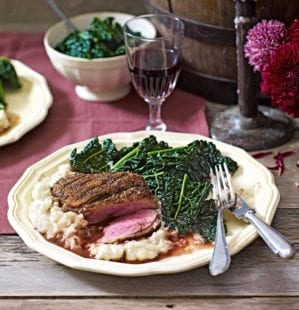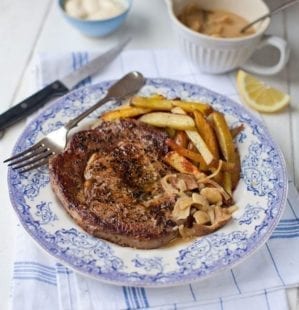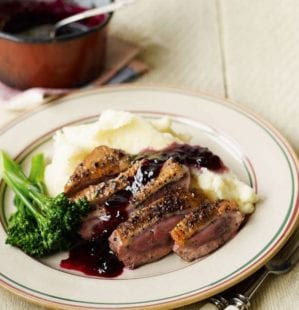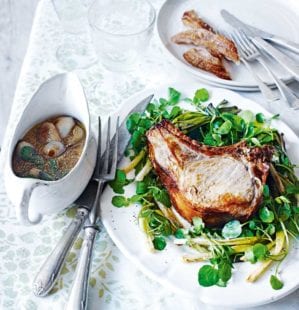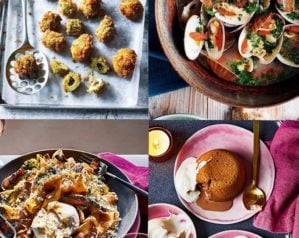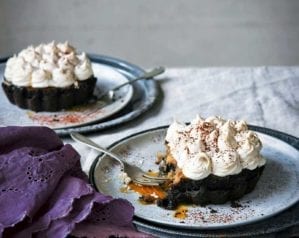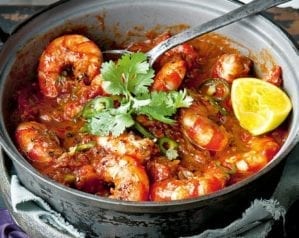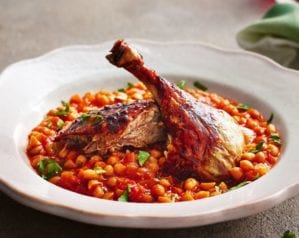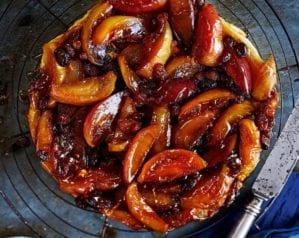
Roast duck breasts with agen prunes and armagnac
- Published: 5 Nov 18
- Updated: 18 Mar 24
This restaurant-worthy duck recipe is guaranteed to make your Valentine’s Day date swoon. It’s also a fab alternative dinner option for two people on Christmas Day. Henry says: “The roast duck breast with prunes is inspired by roast magret de canard from southwest France.”
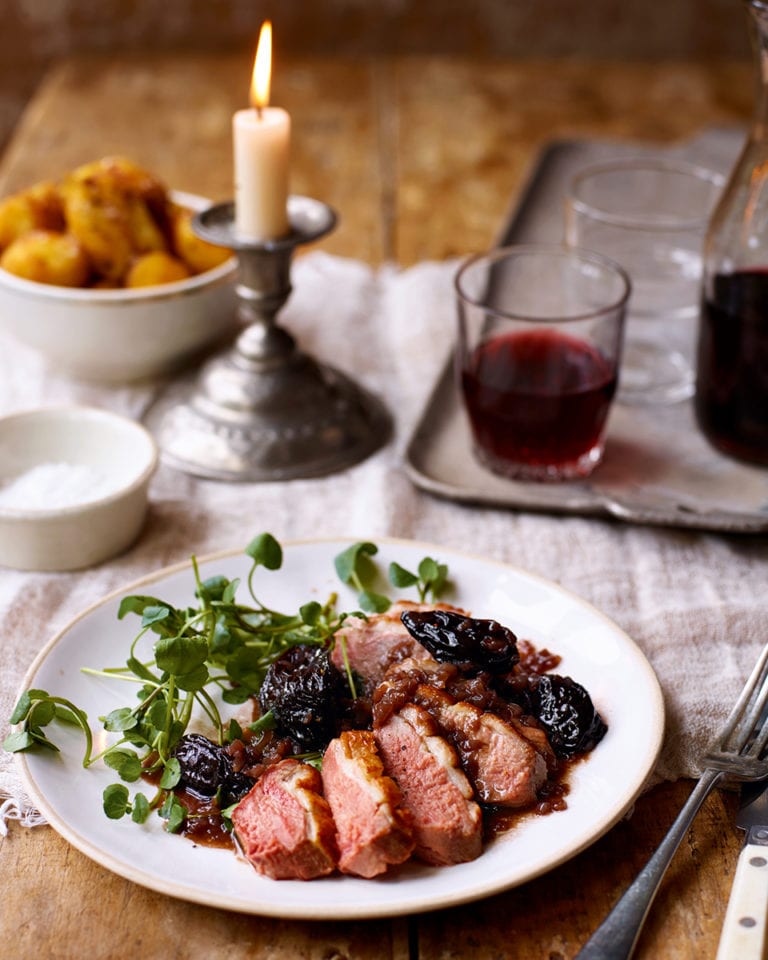
See more Christmas recipes for two.
-
Serves 2
-
Hands-on time 25 min, oven time 8 min, plus 1 week macerating
Ingredients
For the macerated prunes
- 250g sugar
- 500g agen prunes (stone in if you can get them)
- 150ml armagnac
For the duck
- 1 large or 2 small free-range duck breasts (about 450-500g in total; see Know-how)
- 25g butter
- 2 tbsp finely chopped shallot
- 50ml red wine
- 125ml good quality chicken stock
- 4 macerated agen prunes (see above), pitted and halved
- Lemon juice to taste
- 20ml armagnac
- Bunch watercress
- Cooked potatoes to serve (optional)
You’ll also need…
- Large sterilised Kilner jar for the prunes (see Make Ahead)
- Medium ovenproof frying pan
Method
- At least a week ahead, marinate the prunes. Put 250ml cold water and the sugar in a pan on a medium heat. When the sugar has dissolved, bring to the boil, simmer for 2 minutes, then remove from the heat and cool. Transfer the prunes to a large Kilner jar or similar, then add the armagnac and enough cold syrup to cover. Stir and seal with the lid, then leave in a cupboard for at least a week (see Make Ahead).
- When you’re ready to cook the dish, heat the oven to 160°C/140°C fan/gas 3. Trim the duck of any sinew, then score the fat with a sharp knife in fine, deep lines in a criss-cross pattern, taking care not to cut into the flesh. Season.
- Put the duck breast fat-side down in a cold ovenproof frying pan, put on the hob and start cooking on a medium heat. Fat will start to render out, then the skin will begin to crisp. Once there’s a visible amount of liquid fat, use it to baste the meat every couple of minutes. Do this for 8-10 minutes, turning down the heat if the fat is getting too dark. Turn the breast, then transfer the pan to the oven and cook for 8 minutes more for rare (or for slightly longer if you like your duck less pink). Remove from the oven, transfer to a board and leave to rest, uncovered, in a warm place (see tip).
- Return the pan to the hob, add the butter and melt over a low heat. Add the shallot and cook for 5 minutes or until soft. Add the red wine and in moments it will have reduced to almost nothing. Add the stock and bring to the boil. Turn to a gentle simmer and add the 4 halved prunes.
- Cook for 10 minutes, then check the seasoning of the sauce, adding salt and pepper if needed. If the sauce has become too sweet or cloying, add a few drops of lemon juice. Finally stir in the armagnac and remove from the heat.
- Carve the duck into slices and arrange on a serving platter. Garnish with the watercress, then spoon over the sauce. Sauté potatoes or potatoes roasted in the duck fat would be good on the side.
- Recipe from November 2018 Issue
Nutrition
- Calories
- 425kcals
- Fat
- 22.7g (8.9g saturated)
- Protein
- 15g
- Carbohydrates
- 22.3g (15.2g sugars)
- Fibre
- 3.9g
- Salt
- 1.5g
delicious. tips
Henry says: “Keep leftover duck fat in a sealed container in the fridge to use for roast potatoes.”
The prunes are best macerated for at least 1 week. If you’re short on time, macerate them overnight.
Only a few prunes are used in the recipe. The rest will last for months in a cool place in a sterilised jar.
The muscovy (or barbary) ducks that are traditionally used for magret de canard are larger than most other breeds.
Plump for a richer, more hearty red from the southwest such as minervois or fitou and decant the wine before serving.
Buy ingredients online
Rate & review
Rate
Reviews
Subscribe to our magazine
Food stories, skills and tested recipes, straight to your door... Enjoy 5 issues for just £5 with our special introductory offer.
Subscribe
Unleash your inner chef
Looking for inspiration? Receive the latest recipes with our newsletter

